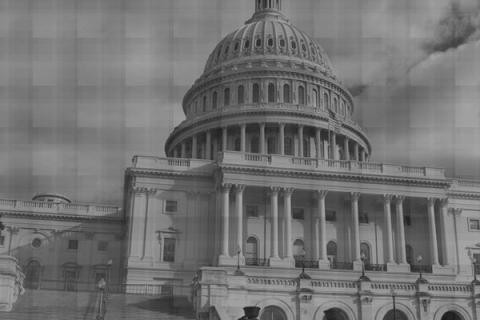(Credit: blogs.e-rockford.com)

This week in Illinois, Bruce Rauner, a venture capitalist and Republican candidate for governor, will be introducing a platform of term limits in Illinois. According to the Chicago Tribune, Rauner's PAC, the Committee for Legislative Reform and Term Limits, has raised over $205,000 so far.
This would not mark the first time a concerted effort was made in the Land of Lincoln to limit the terms of Springfield politicians.
As state treasurer, current Illinois governor Pat Quinn orchestrated a campaign of "Eight is Enough," an effort to limit legislators to eight consecutive years in the General Assembly. Quinn collected nearly half a million signatures, but the Illinois Supreme Court struck down the initiative as unconstitutional.
The rationale was that the proposed ballot amendment did not meet the legal standard "that ballot proposals generated by voter petitions must affect both the structure and procedures of the legislature."
The details of Rauner's plan have not yet been revealed. After the 2012 elections, a poll conducted by the Paul Simon Public Policy Institute, located in Carbondale, found that 78 percent of registered Illinois voters support term limits for legislators. However, speculation is already circulating that the intended target of such a proposal is Speaker of the House Michael Madigan. Madigan has served in the Illinois Legislature for 42 years and has been speaker for all, but 2 of the last 30 years.
Writing at RebootIllinois.com, a website dedicated to "encourage citizens to retake ownership of our governments," executive editor Matt Dietrich believes the effort will have appeal, but it is not the solution for the problems of Illinois:
"It takes time to learn how to do any job well, and that's especially true of a job that involves navigating a bureaucracy like the Illinois government. . . ."Legislators learn from the career bureaucrats (and I am not using that word derisively) who run the day-to-day business of government. They become less dependent on these staffers as they acquire institutional knowledge. Imposing term limits means these unelected government employees assume more responsibility as brand new lawmakers enter office at regular intervals."And remember that lobbyists have no term limits."
Governor Quinn says that he still favors term limits, but he faces a unique set of circumstances himself. If re-elected to a second full term in 2014, and barring death or eviction, Quinn will be serving as governor for nearly ten years, two more years than he has said he would like legislators to serve. Quinn entered office in January 2009 when Governor Rod Blagojevich was impeached by both houses of the General Assembly. Illinois currently has no term limits on governors and Quinn has not said how long he would like to serve as governor.
Rauner, who has never before run for office, will be facing State Treasurer Dan Rutherford, State Senators Bill Brady and Kirk Dillard, as well as a handful of lesser-known Republicans in the March 2014 primary. However, if Rauner is successful in the primary, and he ends up facing Quinn in the general election, it may very well become one of the bigger stages for the debate on term limits in the country.
